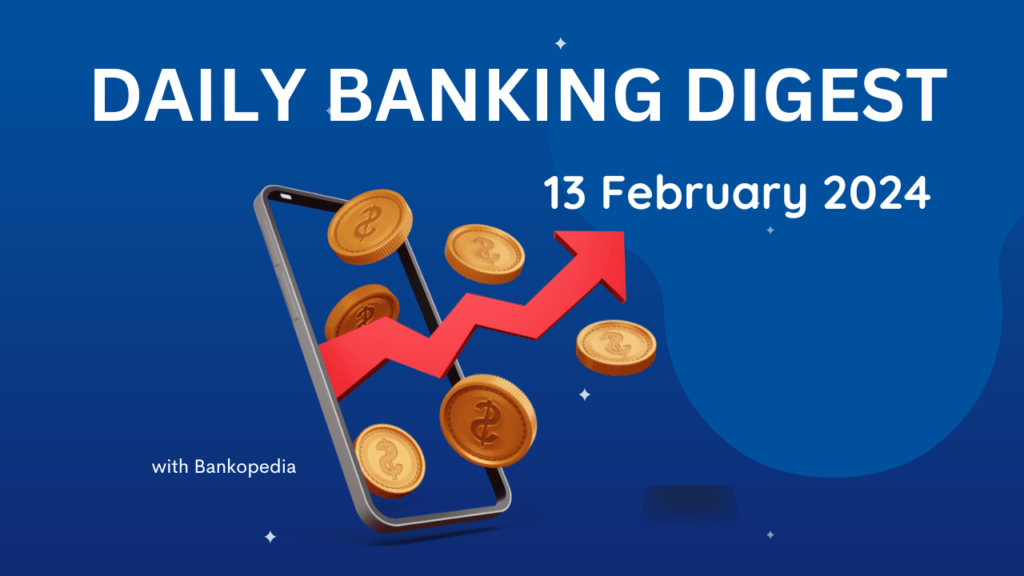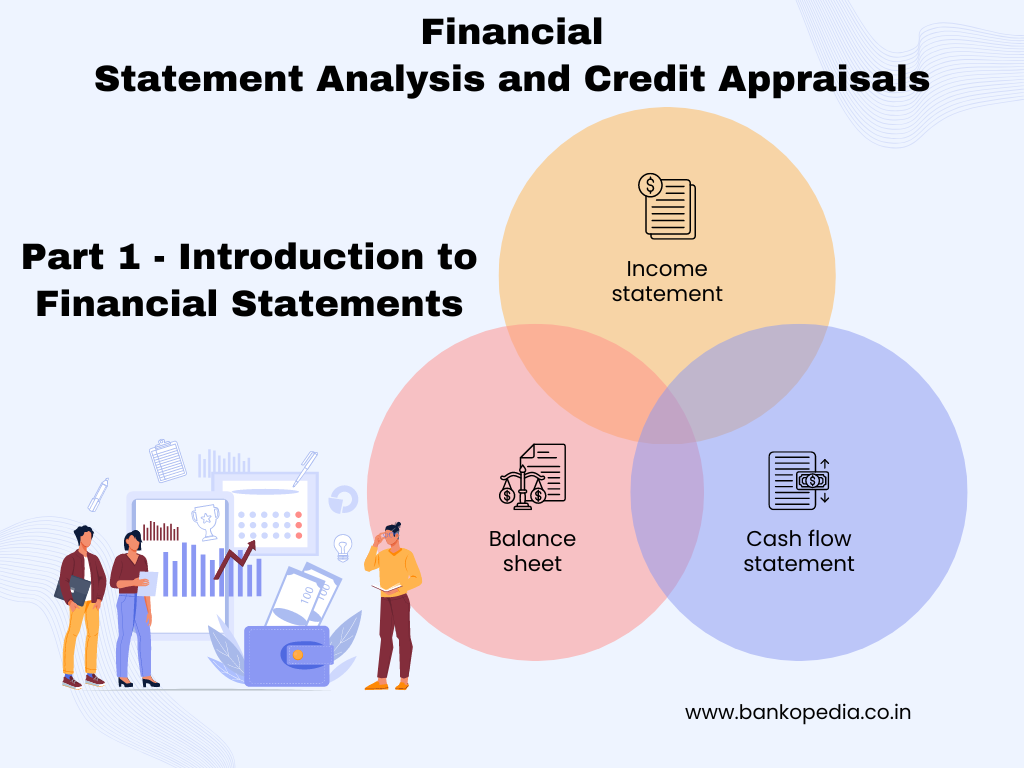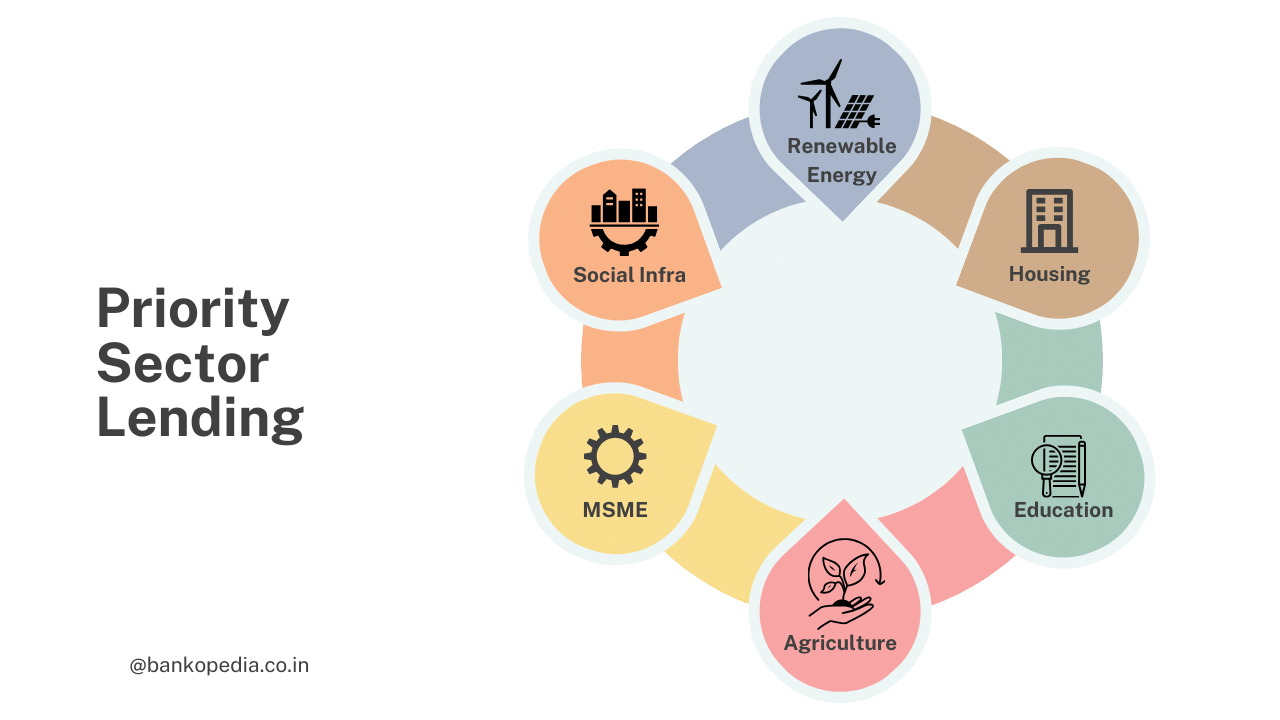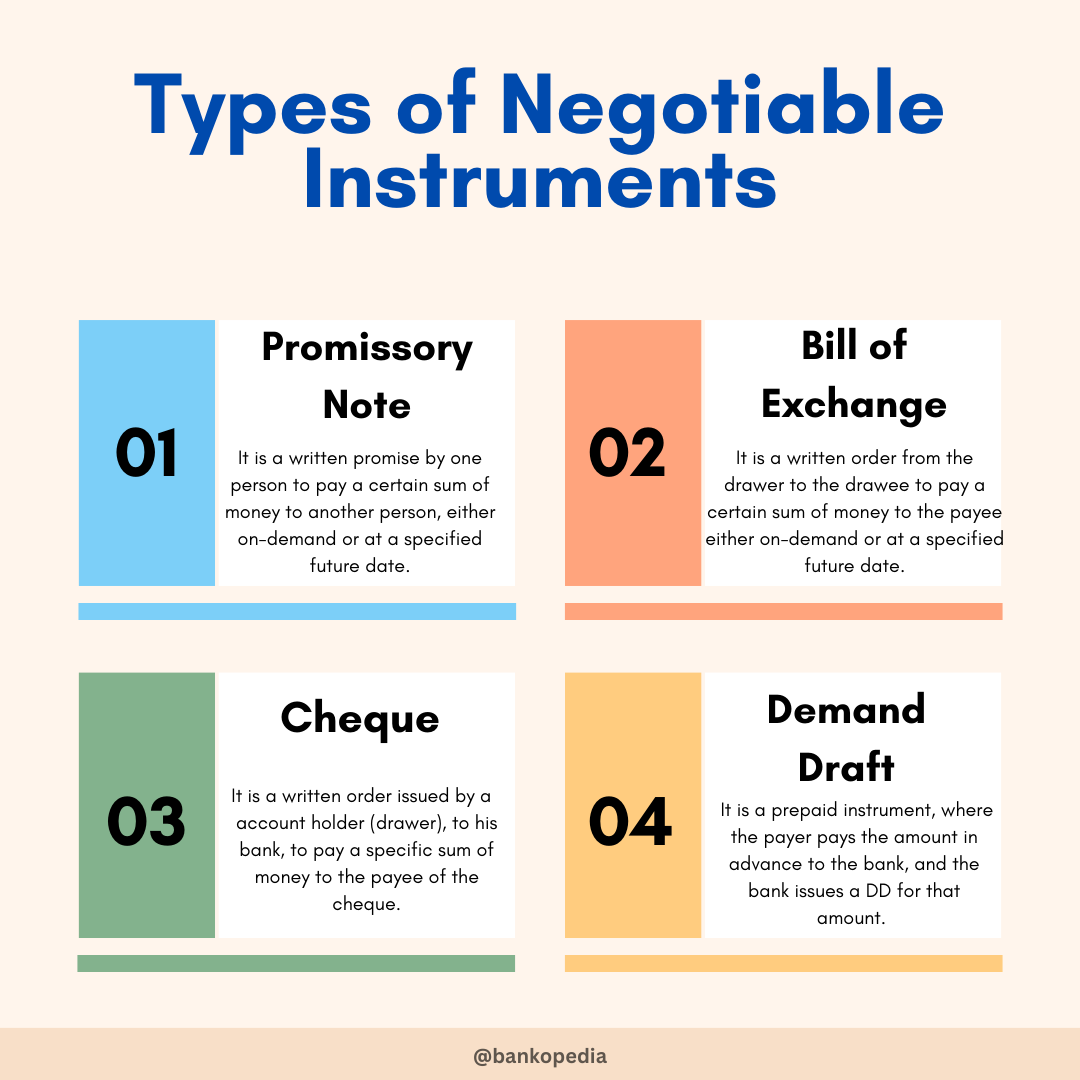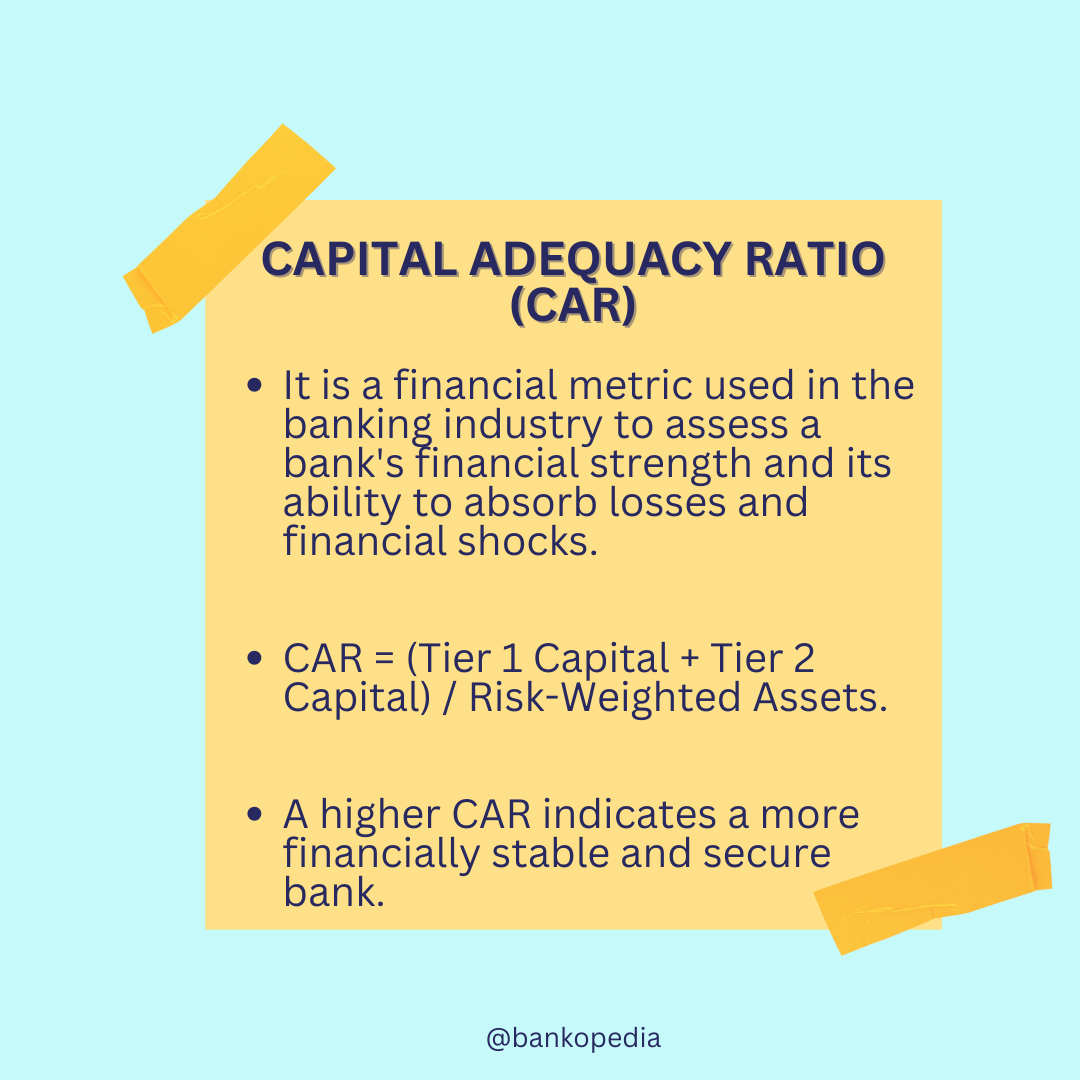Welcome to Daily Banking Digest, your premier source for the latest news and insights on February 13, 2024, focusing on banking, the economy, and finance. Our platform offers a comprehensive overview of the day’s most critical financial stories, market trends, and economic developments. Whether you’re a professional in the financial sector, an investor monitoring market movements, or someone interested in staying informed about the economic landscape, Daily Banking Digest provides reliable, up-to-date information.
Download PDF From Here
Table of Contents
Modi, UAE President to discuss energy, ports, digital infra, capital flows in bilateral meet.

The upcoming bilateral meeting between Indian Prime Minister Narendra Modi and UAE President Sheikh Mohamed bin Zayed Al Nahyan will focus on deepening economic ties across various sectors, including energy, trade, and digital infrastructure. Modi’s visit includes a special address at the World Government Summit 2024 in Dubai and discussions with other high-level UAE officials.
Key Points:
- The bilateral talks will aim to strengthen economic collaboration in energy security and trade, ports, railways, maritime logistics, and digital infrastructure.
- Agreements and understandings in these areas are being discussed ahead of Modi’s visit on February 13-14.
- Modi will also meet with Sheikh Mohammed bin Rashid Al Maktoum, Vice President and Prime Minister of the UAE, to discuss defense and other issues.
- Digital cooperation is highlighted, with potential agreements on digital infrastructure investment and fintech connectivity.
- The UAE is a significant trade partner and investor in India, being the third-largest trading partner and one of the top investors.
- There is a substantial Indian expatriate community in the UAE, making up the largest expatriate group.
- This visit marks Modi’s seventh trip to the UAE since 2015 and the third within eight months.
SC issues notice to Centre on anti-profiteering provision under GST.
The Supreme Court of India has issued notices to several governmental bodies concerning the challenge to the constitutional validity of the GST Act’s anti-profiteering measures, without granting a stay. The Delhi High Court had previously upheld these provisions, which require companies to pass on tax savings to consumers, affecting many businesses.

Key Points:
- The Supreme Court is reviewing the constitutional validity of the anti-profiteering provisions in the GST law after a plea challenged a Delhi High Court ruling that supported these measures.
- The High Court had affirmed Section 171 of the CGST Act, which mandates that tax savings be passed on to consumers through price reductions.
- This ruling impacted numerous companies, prompting Excel Rasayan to file a Special Leave Petition with the Supreme Court.
- The anti-profiteering rules aim to ensure consumer welfare by requiring businesses to share the benefits of tax reductions or increased tax credits.
- Over 100 petitions were filed against this provision and the National Anti-Profiteering Authority’s (NAA) penalty notices, spanning various industries.
- The High Court acknowledged potential arbitrary uses of these powers but suggested that the remedy lies in contesting such orders on their individual merits.
- Industry representatives argue that the GST Act’s evolution has led to ambiguities in the anti-profiteering provisions, lacking clear guidelines, and specific time limits for enforcement.
- The Competition Commission of India (CCI) has now taken over the responsibilities of the NAA, but there are concerns about the CCI’s expertise in GST matters compared to the specialized knowledge of the NAA.
Merchant Shipping Act recast in the works.

India is updating its maritime legislation to replace the Merchant Shipping Act of 1958. The revisions aim to integrate international maritime conventions, simplify ship registration, promote electronic documentation, and establish a tiered dispute resolution mechanism. These changes are being deliberated by the Ministry of Ports, Shipping, and Waterways.
Key Points:
- The Merchant Shipping Act of 1958 is being overhauled to reflect current international maritime practices and India’s commitments to international conventions.
- The proposed changes will facilitate easier ship registration for non-resident Indians (NRIs), overseas citizens of India, and various corporate entities.
- Electronic registration of ships and the use of electronic documents like log-books will be introduced to streamline maritime operations.
- A three-tier dispute resolution mechanism is proposed to address conflicts involving ship-owners, salvors, seafarers, and maritime agents.
- Definitions for terms such as “abandoned vessels” are being clarified, and there will be provisions for action against “unsafe vessels.”
- The government aims to empower central and port authorities to manage abandoned vessels and ensure vessel safety.
- The updates seek to reduce compliance burdens, improve the ease of doing business, leverage digital technology, and establish a statutory framework for maritime emergencies.
- Previous attempts to revise the Act in 2016 were unsuccessful, but the reworking process resumed in 2021, with the draft being reviewed by the Legislative Department between July 2022 and July 2023.
New overweight surcharge by shipping lines worries shippers in Cochin Port
The Cochin Port shipping community is anxious about the new overweight surcharge (OWS) implemented by some international shipping lines from February 7. This surcharge affects heavy dry cargo containers and is expected to impact Indian exports and shipping operations due to additional costs and rerouted shipping schedules caused by the situation in the Red Sea.

Key Points:
- International shipping lines have introduced an overweight surcharge for containers over 18 tonnes, priced at $250 for 20-foot containers.
- The OWS affects shipments from several Indian ports to destinations in the Indian Ocean region.
- Shippers have to either pay the new surcharge or reduce their cargo weight to meet shipping line requirements.
- The shipping situation is complicated by rerouted schedules due to issues in the Red Sea, extending trips by 12-14 days and increasing freight rates.
- High freight rates and space constraints are already causing distress in the export sector.
- Window berthing disruptions at ports have led to cargo accumulation and fully loaded vessels.
- Shipping lines are implementing the OWS to avoid losses from carrying fewer containers due to heavier loads.
- The Cochin Port Users Forum indicates that while tonnage is critical for long-haul voyages, the impact of the OWS on Cochin Port is expected to be minimal due to adjustments with ocean freight and downward trends in freight rates.
Now you can use RuPay card, UPI in Mauritius, UPI in Sri Lanka.
Travelers from India to Mauritius can now use RuPay cards for transactions and cash withdrawals, while those visiting Mauritius and Sri Lanka can make payments via the Unified Payment Interface (UPI) system with their mobile phones. This development was virtually launched by leaders of the respective countries and is a step towards enhancing fintech cooperation within the Indian Ocean Region.
Key Points:
- RuPay card and UPI connectivity between India, Mauritius, and Sri Lanka have been virtually inaugurated.
- Prime Minister Narendra Modi, along with leaders from Mauritius and Sri Lanka, and central bank governors from the three countries, witnessed the launch.
- Modi emphasized the significance of integrating modern digital technology with the historical ties of these Indian Ocean Region countries.
- Indian travelers in Mauritius can now make payments using UPI, and Mauritian travelers can use the Instant Payment System (IPS) app in India.
- Mauritius is the first country outside Asia to issue cards with RuPay technology, which can be used locally and in India.
- Indian RuPay cards will be accepted in Mauritius at ATMs and PoS terminals.
- The digital payment connectivity with Sri Lanka allows Indian travelers to make QR code-based payments there.
- These initiatives are a collaboration between NPCI International Payments Limited (NIPL), partner banks, non-banks, and the Reserve Bank of India (RBI), and are currently operational through select providers, with plans for expansion.
SEA asks govt to bring finished products of oleochemical industry under restricted list.

The Solvent Extractors’ Association of India (SEA) is raising alarm over the impact of duty-free imports of oleochemical products from Southeast Asian countries on the domestic industry. They are calling for government intervention to restrict these imports and apply additional duties to protect and promote local manufacturers.
Key Points:
- SEA has submitted a memorandum to the Union Minister of Commerce and Industry, expressing concern about the importation of oleochemicals like stearic acid and refined glycerine at low or no duty, primarily from Malaysia, Indonesia, and Thailand.
- Oleochemicals are chemicals derived from vegetable oils and fats, and India has seen significant investment and capacity expansion in this sector over the past decade.
- The domestic oleochemical industry is under threat due to large-scale imports of finished products at reduced duties, which disadvantages local producers.
- Imports of stearic acid, soap noodles, refined glycerine, and oleic acid have dramatically increased in recent years, posing a significant challenge to domestic manufacturers.
- The SEA President pointed out that other countries, like members of the European Union, have protected their oleochemical industries by imposing restrictions or higher duties on finished products from countries like Indonesia and Malaysia.
- The SEA suggests placing imports of specific oleochemical products on the restricted items list and imposing an additional duty of 25% over the raw material costs such as refined palm stearin.
- They also recommend allowing duty-free imports of necessary raw materials for domestic oleochemical producers with the appropriate facilities.
- The SEA believes that these measures will support domestic industries, contribute to the growth of the sector, and align with the Prime Minister’s “Make in India” initiative.
No review of action taken against Paytm Payments Bank, says RBI Governor
RBI Governor Shaktikanta Das confirmed there will be no review of the regulatory action taken against Paytm Payments Bank and announced the upcoming release of FAQs to address customer interest issues. The central bank’s actions include directives to stop certain operations of the bank due to non-compliance concerns.

Key Points:
- The RBI Governor stated that the actions against Paytm Payments Bank, including stopping the acceptance of new deposits, will not be reconsidered.
- A set of FAQs focused on customer interests and issues will be published, emphasizing the RBI’s priority for customer and depositor interests.
- The RBI’s decision to restrict Paytm Payments Bank’s activities was made after significant consideration and is part of a serious regulatory approach.
- While supporting the growth of the fintech sector, the RBI remains focused on customer interests and financial stability.
- The RBI had previously barred Paytm Payments Bank from onboarding new customers due to persistent non-compliance and supervisory concerns.
- Although the bank is not allowed to accept new deposits or transactions, the RBI permits the credit of interest, cashbacks, or refunds, and customers can continue to use their existing funds without restrictions.
- The RBI has directed the termination of nodal accounts of One97 Communications Ltd, which holds a 49% stake in Paytm Payments Bank.
- The RBI Board reviewed the global and domestic economic situation, including challenges from geopolitical developments and financial market volatility, during a meeting addressed by Finance Minister Nirmala Sitharaman.
Banks’ current account deposits take a hit on just-in-time fund release by govt.

The Indian government’s adoption of the just-in-time (JIT) principle for fund disbursement has led to more efficient cash management, resulting in reduced funds available for banks. This change is affecting banks’ current account deposits, which are critical for their net interest margins, and they are now seeking alternative strategies to grow these deposits.
Key Points:
- The JIT principle has been implemented by the government for releasing funds, impacting the amount of money banks have at their disposal.
- There has been a slight decline in current account deposits as a percentage of total deposits in scheduled commercial banks from 2022 to 2023.
- Lower current account deposits negatively affect banks’ net interest margins, prompting them to look for new ways to increase these deposits.
- The State Bank of India (SBI) has shifted its focus to trade, commerce, and industry sectors to grow its current account deposits and has seen positive growth as a result.
- The government’s surplus cash balances have grown significantly, influenced by the JIT system, which affects banking system liquidity.
- Current accounts are non-interest bearing and require a minimum balance, used mainly by customers with high volumes of business transactions and frequent withdrawals.
India’s vegetable oil imports fall 28% in January.

India’s vegetable oil imports have significantly decreased by 28% in January compared to the same month last year, with a 23% reduction in the first quarter of the current oil year. The Solvent Extractors’ Association of India (SEA) attributes this to lower global production, economic issues, and palm oil being diverted to bio-diesel production by major suppliers.
Key Points:
- India’s January vegetable oil imports dropped to 12 lakh tonnes from 16.61 lakh tonnes the previous year.
- The country is one of the largest vegetable oil buyers globally.
- The total vegetable oil imports for the first quarter fell to 36.73 lakh tonnes from 47.73 lakh tonnes year-over-year.
- The import composition in January included approximately 7.82 lakh tonnes of palm oil and 4.08 lakh tonnes of soft oils.
- As of February 1, the total stock of edible oils in India was 26.49 lakh tonnes, a decline from the previous year.
- SEA anticipates edible oil prices may rise due to lower production, global economic issues, and supply constraints.
- Palm oil availability is decreasing as Malaysia and Indonesia, the main producers, are increasingly using it for bio-diesel.
- Global palm oil production was low in the first quarter of 2024, affecting stock levels in both producing and importing countries.
- India primarily imports palm oil from Indonesia and Malaysia, soyabean oil from Argentina, and sunflower oil from Ukraine and Russia.
Lower govt borrowing to prop up growth, moderate inflation, says RBI Governor Shaktikanta Das
RBI Governor Shaktikanta Das highlighted the positive impact of lower government borrowings on the economy, indicating that it leaves more resources for the private sector, potentially easing inflation and promoting growth. The borrowing for the coming financial year is set below market expectations, aligning with the government’s fiscal consolidation goals.

Key Points:
- The government’s borrowing for the next financial year is lower than market estimates, which is expected to free up capital for the private sector.
- Das suggests that the reduction in government borrowing could help stabilize inflation and spur economic growth by making more credit available for private investment.
- The interim Budget proposed a borrowing of Rs 14.13 lakh crore, which is lower than the previous year’s Rs 15.43 lakh crore.
- The lower borrowing reflects increased tax revenues and adherence to the fiscal consolidation roadmap.
- The government’s debt-to-GDP ratio reached 88% during the COVID period but is now on a downward trajectory.
- With a fiscal deficit target reduced to 5.1% for the next year and 4.5% for the following year, the debt-to-GDP ratio is expected to decrease further.
- The government achieved a fiscal deficit of 5.8% this year, slightly better than the budget estimate, without resorting to tax cuts or populist measures before the upcoming general elections.
- The FRBM Act outlines a plan to achieve a fiscal deficit of 4.5% by the financial year 2025-26.
- As inflation moderates, bond yields and borrowing costs for the government are anticipated to decrease, which has begun to reflect in the softening of the 10-year and 5-year bond yields.
Paytm Payments Bank’s director has resigned, company confirms.

Paytm Payments Bank has confirmed the resignation of independent director Manju Agarwal amidst challenges following the Reserve Bank of India’s (RBI) directive to scale down operations. In response, Paytm has formed an advisory committee to focus on compliance and regulatory matters, featuring experienced professionals and banking experts.
Key Points:
- Manju Agarwal resigned from the board of Paytm Payments Bank on February 1 due to personal commitments.
- This follows the RBI’s January directive that ordered Paytm Payments Bank to cease most of its operations due to regulatory non-compliance.
- Paytm Payments Bank, which is an associate of One97 Communications Limited, is under scrutiny by the RBI for repeated failure to adhere to regulatory guidelines.
- The RBI had previously barred the bank from opening new accounts and wallets in June 2018, a ban which was lifted in December 2018.
- One97 Communications Limited owns 49% of Paytm Payments Bank, while Vijay Shekhar Sharma holds a majority stake.
- The newly formed advisory committee includes M Damodaran as chair, along with other notable figures such as MM Chitale and R Ramachandran.
- The advisory committee’s establishment is part of Paytm’s initiative to strengthen its compliance framework in light of the regulatory issues it faces.
Paytm clarifies on status of govt approval for investment in payments gateway arm.
Paytm is currently awaiting government approval for an investment in its payment gateway division, Paytm Payments Services, and assures its merchant partners of uninterrupted service. Amid regulatory challenges with Paytm Payments Bank, RBI Governor Shaktikanta Das asserts that the central bank’s actions are well-considered and an FAQ will soon address customer concerns. Paytm has also established an advisory committee to enhance compliance efforts.

Key Points:
- Paytm is waiting for government clearance for an investment in Paytm Payments Services.
- The company maintains that its operations are ongoing and committed to its merchant partners.
- RBI Governor Shaktikanta Das emphasized that the RBI’s decisions, including those concerning Paytm Payments Bank, are made after thorough deliberation.
- The RBI plans to release an FAQ to clarify issues for Paytm’s customers and ensure their interests are protected.
- Paytm’s Board has formed a Group Advisory Committee, chaired by M Damodaran, to focus on compliance and regulatory matters.
- The Committee includes notable industry professionals and aims to support Paytm in its commitment to sustainable growth within regulatory frameworks.
Canara Bank plans to seek RBI’s permission for credit card subsidiary this month.

Canara Bank is planning to transform its IT subsidiary into a credit card company to capitalize on its substantial customer base and grow in the credit card market. The bank, with a 94% stake in the new venture, is on the verge of seeking approval from the RBI, aiming to leverage its 110 million-strong customer base for credit card distribution.
Key Points:
- Canara Bank is preparing to apply to the RBI to turn its IT subsidiary into a credit card company.
- The bank will hold a majority 94% stake in the new venture, with Karur Vysya Bank owning the remaining shares.
- Canara Bank is in the process of acquiring the stakes of Bank of Baroda and DBS Bank in Canbank Computer Services.
- The subsidiary’s current business focuses on IT services, BPO, ATM services, and consultancy, with a net profit of Rs 16.25 crore last fiscal year.
- The bank has already started internal restructuring by moving its card division GM to lead the subsidiary.
- Canara Bank has a significant number of credit cards in circulation, which will be transferred to the new company once operational.
- India’s credit card market is expanding, but remains under-penetrated, presenting a considerable opportunity for growth.
Bond with Bharat: What activation of J P Morgan Index means for India Inc
RBI Governor Shaktikanta Das views the inclusion of Indian government bonds in the J P Morgan Bond Index as a positive sign of international confidence in India’s economy and financial markets. This move is anticipated to attract substantial portfolio inflows and could stimulate the corporate bond market, which is a significant funding avenue for India Inc.
Key Points:
- Indian government securities will be added to the J P Morgan Bond Index in June, with an expectation of $18-22 billion inflows through March FY25.
- The RBI has maintained key rates, with possibilities of cuts in the second half of the fiscal year, and the government’s net borrowing is set lower for FY25.
- The inclusion in the index is expected to enhance liquidity and demand for both government and corporate bonds.
- The Indian bond market has a low foreign ownership, with potential for increased investment following the index inclusion.
- SEBI’s mandate for large companies to borrow through the bond market aims to diversify funding sources away from bank finance.
- CRISIL Ratings predicts significant infrastructure and corporate capex, with corporate bonds financing a part of it.
- The success of the Insolvency and Bankruptcy Code is vital for building investor confidence, especially in lower-rated bonds.
- Most bond issuances are highly rated, but mid-rated ‘A’ category bonds have shown resilience and improved debt protection metrics.
- While the inclusion in global bond indices will likely bring benefits, concerns over fiscal health could lead to rating downgrades or index removal.
- Das highlighted the global issue of high public debt levels but expressed optimism for India’s debt trajectory due to its commitment to fiscal consolidation and growth.
RBI conducts two VRR auctions to infuse liquidity into the banking system.
The Reserve Bank of India is actively managing the liquidity shortfall in the banking system, which is approaching Rs 2 trillion, by conducting multiple variable rate repo auctions. This move is part of the RBI’s flexible approach to ensure the stability and systematic evolution of money market interest rates.
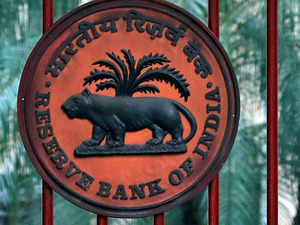
Key Points:
- RBI conducted two 4-day variable rate repo auctions on Monday to address a liquidity deficit in the banking system.
- The liquidity deficit has widened to Rs 1.96 trillion, prompting the RBI’s intervention.
- The RBI held two VRR auctions in one day for the first time, after conducting several fine-tuning operations earlier in February.
- Market participants anticipate ongoing VRR auctions by the RBI, especially considering upcoming tax outflows.
- RBI Governor Shaktikanta Das has attributed current liquidity conditions to external factors, which are expected to be rectified with the central bank’s interventions.
- The RBI plans to use a combination of repo and reverse repo operations to manage both short-term and long-term liquidity needs.
- These actions are in line with the RBI’s priority to control inflation and maintain financial stability.
January retail inflation eases to 5.1%; December IIP growth at 3.8%.
India’s CPI-based inflation for January was recorded at 5.1%, a decrease from December’s four-month high of 5.69%. Rural and urban inflation also eased in January. Food and beverage inflation, while high, has reduced slightly from the previous month. The RBI has maintained its inflation forecast for FY24 and FY25, with close monitoring of food prices due to their uncertainty.
Key Points:
- CPI-based inflation for January stood at 5.1%, reflecting a downward trend from December 2023.
- Rural inflation decreased to 5.34% and urban inflation to 4.92% in January.
- Food and beverage category experienced a slight decrease in inflation to 8.3% in January from 8.70% in December.
- RBI Governor Shaktikanta Das highlighted that inflation trends would be influenced by volatile food prices.
- The RBI has retained its inflation projection at 5.4% for FY24 and forecasts a consistent rate of 4.5% for FY25.
- The IIP growth for December 2023 showed an increase to 3.8%, rebounding from a low in November.
Airbus C295 programme gets nod from DGAQA.

The Airbus Defence and Space division has obtained the necessary approval from India’s DGAQA for its Quality Management System (QMS), enabling the production of parts and sub-assemblies of the C295 aircraft in India. This move aligns with Airbus’s collaboration with Tata Advanced Systems Limited (TASL) and supports the ‘Make in India’ initiative.
Key Points:
- Airbus Defence and Space’s QMS for the C295 aircraft is approved by DGAQA for production in India.
- Airbus is partnering with TASL to manufacture parts and sub-assemblies across India.
- Jorge Tamarit Degenhardt highlighted the DGAQA’s trust in Airbus quality standards and the adherence to these standards in India.
- The partnership with TASL is part of the broader ‘Make in India’ campaign and aims to establish a comprehensive aircraft manufacturing ecosystem in the country.
- India’s acquisition of 56 Airbus C295 aircraft to replace the IAF’s old AVRO fleet was finalized in September 2021.
- 16 aircraft will be directly delivered from Airbus’s assembly line in Spain, while the remaining 40 will be produced in India with TASL.
- The first C295 aircraft was delivered to the Indian Air Force in September 2023.
- The certification enables the development of an industrial ecosystem encompassing production, assembly, testing, delivery, and maintenance of the aircraft throughout its lifecycle.
Will continue to work with Paytm, subject to RBI forbearance: Axis Bank MD
Axis Bank is committed to continuing its collaboration with Paytm, also known as One 97 Communications, in the financial services sector, provided they comply with regulatory guidelines. Statements from Axis Bank’s top executives confirm the significance of Paytm as a key player in the fintech space and indicate ongoing discussions for potential cooperation in various business aspects.

Key Points:
- Axis Bank plans to maintain its working relationship with Paytm, contingent on regulatory approval.
- Amitabh Chaudhry acknowledges Paytm’s important role in the fintech industry.
- Arjun Chowdhry notes that Paytm has significant business verticals, including merchant acquisition and payments, and discusses ongoing collaborations.
- Post-January 31, Axis Bank is engaging in new discussions with Paytm, though no strategic decisions have been finalized.
- Axis Bank is methodically seeking regulatory approval for business ventures to ensure stability for all ecosystem participants.
- Axis Bank has a significant merchant acquiring business and seeks to grow organically and through partnerships like that with Paytm, if regulatory approved.
- The comments were made during the launch of a report on valuable private companies in India.
- Conversations with Paytm cover extensive financial services aspects, with the RBI’s consultation being pivotal.
- Chaudhry remarks on fintech unicorns’ adaptability to market and customer needs through rapid business model changes.
NPCI in talks to link Indian and US banks for real-time payment service.
The National Payments Corporation of India (NPCI) is nearing the final stages of discussion with US and Indian banks to establish a real-time payment system between the two countries. This initiative aims to expand international payment options and is currently focused on consumer payments.
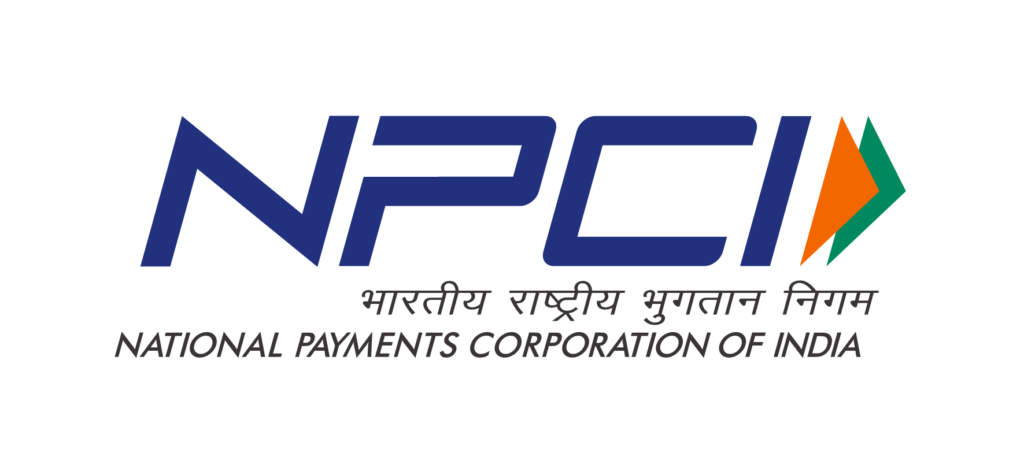
Key Points:
- NPCI is collaborating with banks in the US and India to create a real-time payment link between the two nations.
- The discussions involve creating viable use-cases and pilot testing, with participation from Indian banks experienced in UPI and major US banks.
- FedNow, a real-time payment service by the US Federal Reserve, was launched in July 2023 and is part of the dialogue for partnership.
- The proposed system will initially target small consumer payments due to the absence of a UPI equivalent in the US.
- There will be transaction caps, and the goal is to start with small amounts to ensure reliability and effectiveness.
- Major local banks in both countries are expected to participate to serve the significant consumer payment flows between India and the US.
- The Reserve Bank of India has been assessing cross-border settlements with the US and other countries, seeking technological solutions for direct transactions.
- The RBI recently announced the launch of RuPay cards and UPI connectivity with Mauritius and Sri Lanka, indicating a push for greater international UPI integration.
India bond yields fall as focus shifts to key inflation numbers: Report.
Indian government bond yields dipped slightly as markets anticipated local and U.S. inflation data releases. India’s retail inflation is expected to have fallen, and the RBI is not likely to reduce interest rates soon due to inflation concerns, despite economic growth.

Key Points:
- Indian government bond yields decreased marginally with a focus on the upcoming inflation data from India and the U.S.
- The 10-year Indian bond yield closed at 7.0946%, a slight decrease from the previous close.
- Retail inflation in India is projected to have dropped to 5.09% in January, with core inflation possibly moderating to 3.70%.
- The RBI is not expected to cut interest rates imminently, with predictions of rate cuts starting from June or August.
- The RBI maintained its policy rates last week, aiming for a medium-term inflation target of 4%.
- RBI Governor Shaktikanta Das emphasized the difficulty of achieving the final stages of disinflation.
- U.S. Treasury yields remained high, with the market looking for indications of Federal Reserve rate cuts based on upcoming inflation data.
- Indian states are set to raise funds through bond sales, and the financial market is watching for various economic announcements and policy actions.Top of Form
Financial Concept of the Day- Arbitrage
Arbitrage is a trading strategy that involves buying and selling an asset simultaneously in different markets to profit from the price differences between those markets. Essentially, it exploits the inefficiencies in pricing for the same asset across different locations or platforms.
Simplified Explanation with Example:
Let’s consider a simple example to understand arbitrage better:
Imagine you have two grocery stores:
- Store A sells apples for ₹1 each.
- Store B buys apples for ₹1.20 each.
Arbitrage Opportunity: You notice the price difference between the two stores. You can buy an apple from Store A for ₹1 and then sell it to Store B for ₹1.20.
Execution:
- You purchase 10 apples from Store A for ₹10.
- You then sell those apples to Store B for ₹12.
- Your profit is ₹2 without any significant risk because you knew the prices in advance.
Why It Works: This strategy works because of the price discrepancy for the same asset (in this case, apples) in different markets (the two stores). By quickly acting on this difference, you can secure a profit before the prices adjust and the opportunity disappears.
In financial markets, arbitrage involves assets like stocks, bonds, commodities, or currencies traded in different exchanges or platforms. Traders use sophisticated technology to identify and exploit these price differences quickly since such opportunities often exist for a very short time.
